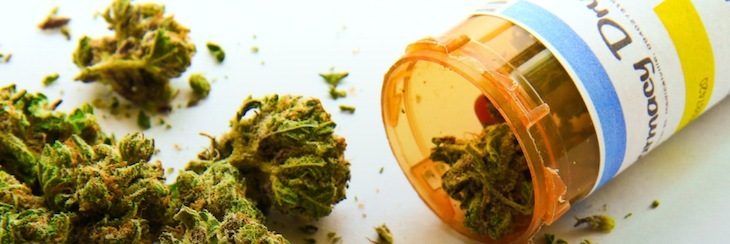Fort Smith businessman seeks marijuana cultivation center, working to figure out a new industry
by March 27, 2017 4:39 pm 3,236 views

Storm Nolan will be the first person to tell you his idea for a medical marijuana cultivation facility in Fort Smith isn’t a given. After all, state officials are proceeding cautiously after the Nov. 8 election that made Arkansas the 26th in the nation to approve marijuana for medical use (53%-47%, 585,030-516,525).
With legislation continuing, dispensaries will be limited at first to between 20-40, while cultivation centers where the crop is grown will range from four to eight.
The Cornell University and Columbia Business School graduate, Southside High School alumni, and partner in CSK Hotels – who earlier this year founded the Arkansas Cannabis Industry Association – hopes to be one of those “four to eight,” but he has also heard the number of applications are “anywhere from 10 to 1,000.”
“I expect the truth is probably somewhere in between,” he told Talk Business & Politics with a slight laugh in a Monday (March 27) phone interview. Point being, he expects “a lot of competition” to become one of the state’s first legal growers.
One of the hurdles standing in his way was cleared at a March 7 Fort Smith Board of Directors meeting when city directors voted to amend the Unified Development Ordinance (UDO) to allow cultivation facilities in industrial-zoned areas. According to the current verbiage in the law, local zoning regulations for cultivation centers cannot be handled any differently than they would be for a licensed retail pharmacy. That means it is possible for a cultivation facility to operate next door to a Walmart or Walgreen’s pharmacy, something Nolan acknowledged is “not ideal.”
“You probably don’t want a cultivation facility to be in commercial zones because a facility the size of ours — if it’s successful — will usually have to operate in a big warehouse,” Nolan explained.
JOB GROWTH
Along with the help of the UDO adjustment, Nolan has also cleared the hurdle of where the warehouse will be located — in downtown Fort Smith at 100 S. E Street.
“Fort Smith is putting a lot of effort into redeveloping downtown, and we think this facility will play into those efforts,” Nolan said, noting that his facility will be home to 30 “good-paying jobs” from line level cultivators and assistants to managers and supervisors. Nolan did not give a hard number on what management/supervisory jobs will pay, but said line level cultivators would start at around $15 per hour and pay for the other positions would “go up from there.”
“We want smart, dependable people, and with the Arkansas Medical Marijuana Act, there is the added challenge of passing a background check for anyone, who works in a dispensary or cultivation center. They will have to be fingerprinted and so on.”
As far as specific experience, Nolan said the cultivation center would be looking for employees with horticulture experience.
“On the processing side, we’re looking for lab experience and commercial retail package food processing — people accustomed to making food products that are highly consistent, someone with factory food grade experience,” he added.
This latter experience is useful to cultivation centers because in addition to making medical marijuana concentrate, the facilities also produce edibles ranging from cookies to lozenges.
TIMELINE AND ECONOMICS
When asked to lay out a timeline for when Fort Smith might see the cultivation center, Nolan said if he and his partners were “lucky enough” to get one of the licenses, approval would come sometime in “late September or October.”
“It’s up to the Arkansas Medical Marijuana Commission really,” he noted, adding there would then be a “build-out — making all the rooms as they should be, getting our equipment set up, starting the plants germinating.” Then, the Alcohol Beverage Control (ABC) of Arkansas would inspect the facility, putting a hypothetical open date “in the first quarter of 2018.”
“It’s hard to put an exact date on it right now, because this is new to them (ABC) as well, so I think they’re not going to try to rush it,” Nolan said.
When figuring out the financial viability of the facility, Nolan said he looked at previous states with legalized medical marijuana and determined the percentage of their populations that had been issued cards.
“From there, you multiply that rate by our population, and you might come up with something like between “10,000 and 30,000 people will get one of these cards. Then, you look at what the average patient consumes.”
In Nolan’s calculations judging the financial viability of the state’s yet-to-emerge industry, he said consumption could be between 8-14 ounces annually per person.
“You do a little math and that works out to 10,000, 20,000 pounds per year when the market becomes stabilized — say, four to five years down the road. It’s not going to be next year.”
